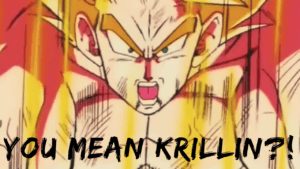Let’s learn Japanese with Kyoko Otonashi’s quote from Maison Ikkoku.
CONTENTS
Video
Kyoko Otonashi’s Quote
Japanese: 一日でいいからあたしより長生きして。
Romaji: ichinichi de ii kara atashi yori nagaiki shite.
English: Live longer than me even by one day.
Analysis
一日 means “one day”. If you have already learned the dates in Japanese, you know the first date of the month is spelled the same but it’s read as ついたち. So when you read this kanji, you need to know if it’s the period of time “one day” or “the first date of the month”. But after two, the reading is the same. So “two days” and “the second date of the month” are both read as ふつか. If you want to make it clear that it is the period of time, you can add 間 at the end. So 二日間 always means “for two days”. On the other hand, when it’s the date of the month, you usually put the particle に after the date so you can tell which one it is.
Noun + でいい means “fine with something” or “something is good enough”. So 一日でいい means “fine with one day”.
から following the clause means “so”.
This から is used to make it easier for the listener to act on a request or an appeal which is stated in the latter part of the sentence. In this case, it makes it easier by lowering the perceived difficulty or commitment.
あたし means “I” which is commonly used by females in casual speech.
より means “than”. So あたしより means “than me”.
長生き is a noun meaning “a long life”. して is the te-form of the verb する meaning “to do”. This te-form is used for request. It’s more polite than the imperative-form しろ which is used to give orders but more casual than してください meaning “please do”. It can be used among equals or by a superior towards their inferior. So 長生きして means “live long” as a request.
Examples
Period of Time
京都に五日間滞在した。
kyōto ni itsuka-kan taizai shita.
I stayed in Kyoto for five days.
一日で夏休みの宿題を終わらせた。
ichinichi de natsuyasumi no shukudai o owaraseta.
I finished my summer holiday homework in one day.
一週間は全部で七日ある。
isshūkan wa zenbu de nanoka aru.
A week has seven days in total.
You don’t usually say 一日間 as it is obvious that いちにち is a period of time.
Noun + でいい (fine with something)
一度でいいから、テストで満点をとりたい。
ichido de ii kara, tesuto de manten o toritai.
I want to get full score on a test even for once.
もう遅いから、話を聞くのは明日でいい?
mō osoi kara, hanashi o kiku no wa ashita de ii?
It’s already late so can I listen to your story tomorrow?
誕生日プレゼントは現金でいいよ。
tanjōbi purezento wa genkin de ii yo.
I’m fine with cash for my birthday present.
Verb Te-form (casual request)
明日の試験、頑張って!
ashita no shiken, ganbatte!
Do your best on your exam tomorrow!
ごめん、もう一回言って。
gomen, mō ikkai itte.
Sorry, say that again.
朝だよ。起きて!
asa dayo. okite!
It’s morning. Wake up!
Support Easy Peasy Japanesey
If you enjoy our content, please consider supporting Easy Peasy Japanesey. Your support will help keep us going. Thank you for your support!


